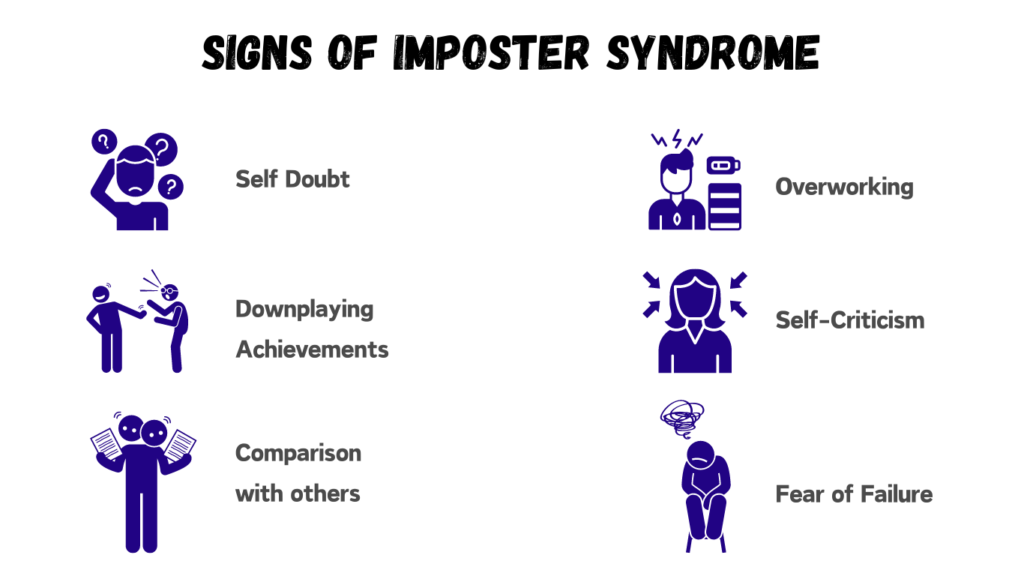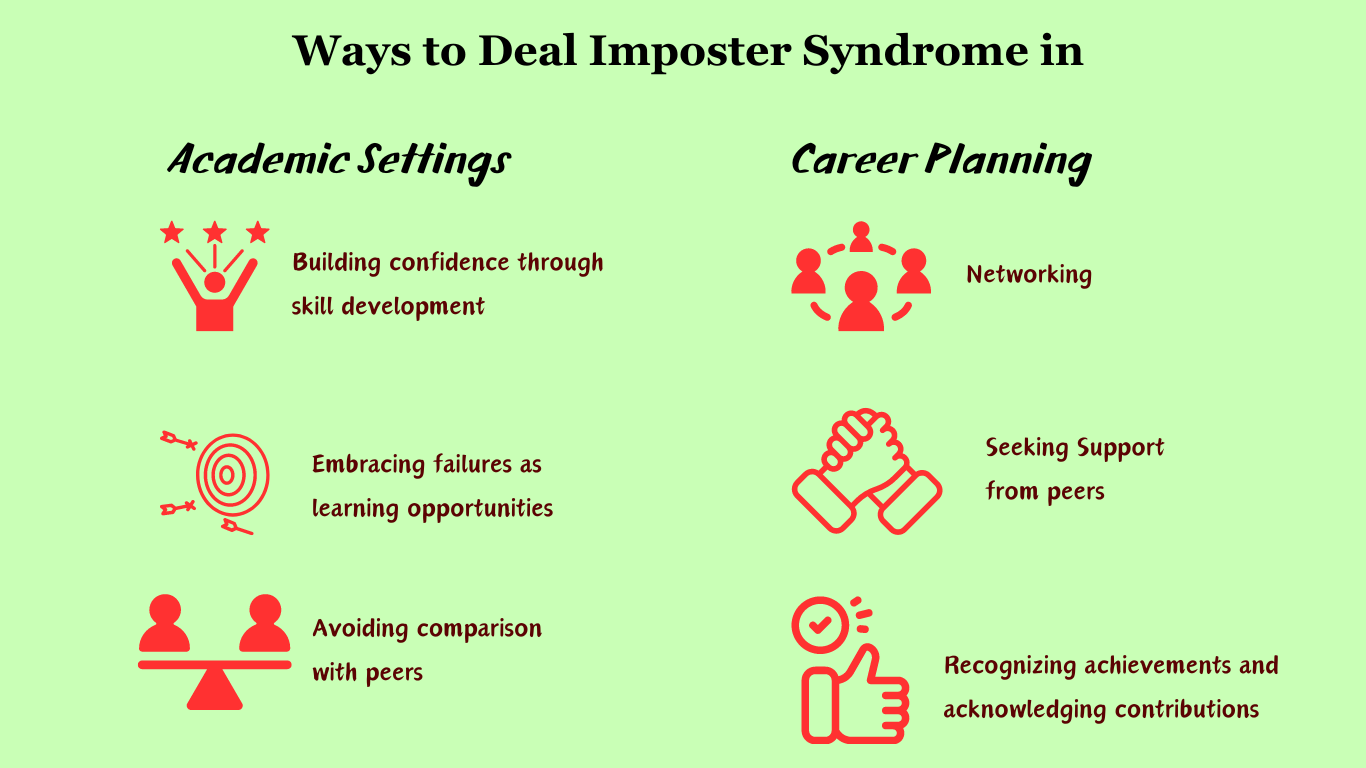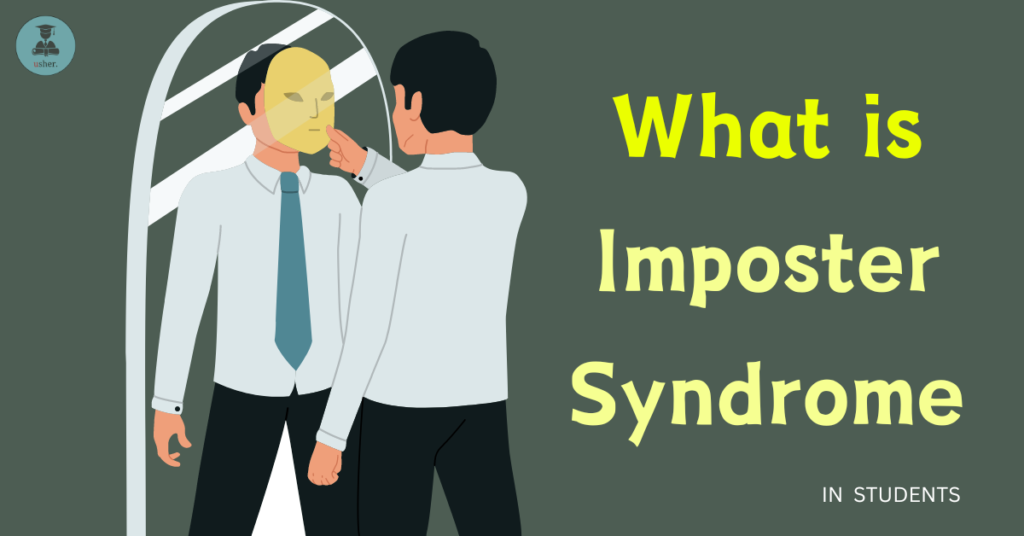Do you feel unprepared for a certain exam, test or presentation, even if you’ve done your best?
Do you suffer from lack of confidence when it comes to your performance?
Do you feel like your accomplishments are just due to pure luck?
While there is no formal diagnosis in the DSM for imposter syndrome, some of the most prevalent symptoms include generalized anxiety, loss of self-confidence, low self-esteem, and low impression of self-competence, autonomy, and feeling of connection with others (Maftei et al., 2021).
Imposter syndrome develops when high-achieving individuals, despite external measurements of achievement, have a chronic sense of self-doubt paired with a dread of being revealed as a hoax.
In 2020, a systematic review of 62 studies evaluated prevalence of imposter syndrome, showing prevalence rates as high as 56% to 82% in graduate students, college students, nurses, medical students, and other professions.
Well, then chances are that you might be suffering from Imposter Syndrome. Here, in this article we are going to dig deeper on this subject. So, keep reading below to find out about one of the most common issues among students:
What is Imposter Syndrome?
As intimidating this name sounds, Imposter Syndrome, also known as Imposter phenomenon, often affects high achieving students and it causes a great deal of self doubt and fear in the minds of the patients.
It also causes the student to feel that their accomplishments and success are not hard earned but instead, out of pure luck. This is because the students are unable to internalise their achievements and are constantly afraid that they might be exposed as fraudulent. It may lead to overpreparation, extreme low self esteem, self doubt and procrastination.
This syndrome is widely prevalent across all genders, ethnicities and professions. It is very common among overachieving students, entrepreneurs, artists and everyone who experiences significant success in their lives. They feel like they don’t deserve their appraisal and are under constant stress and pressure.

Ways Imposter Syndrome Show Up
As we now know, that anyone can suffer from Imposter Syndrome, but what are the archetypes via which it can show up in public?
Let’s find out:
1) The Perfectionist
There is a myth that any person can be 100% perfect in a skill or job. Nothing in this world is ever perfect.
Even the most sleek designs and the best monuments have their own flaws. However, the ‘Perfectionist’ archetype does not agree with this idea. They believe that they must strive to be 100% perfect in whatever skill or profession they choose.
It may even get worse when they proceed to think that they must be perfect in almost everything that they come across. They start pushing themselves to work more and better and be at the top. They undermine all their efforts and begin to believe that they need to work harder.
The perfectionist would even exhaust themselves only to satisfy their hunger to be more perfect. They struggle to get this idea that even the most skilled in the world lags in some areas and even the best player can lose a match.
2) The Natural Genius
This archetype feels that to be genius means to be talented and a talented person does not have to work or put any efforts. They feel like if one gets to achieve something then it should be without any efforts because if you’re a king then you’re not supposed to toil.
But here’s where they go wrong. They fail to count that the most skillful architect has to practise. They don’t see that a soldier becomes a warrior only after they’ve fought uncountable wars. They refuse to admit that you are only skilled if you work on your skill.
Even the sharpest blade was once a blunt piece of metal . Even the brightest diamond was once a mere stone . Even the best sculpture was once just a material. But to make them what they are now, one had to work on them.
Similarly, someone can be intelligent but to be truly genius and at the top, one has to do their best.
3) The Overachiever
“What if I just did well in this paper? It’s just a paper! I have got to do so much more…”
Does this sound familiar?
Well, then you might be acquainted with the next archetype in the list that we’re about to discuss now, the Overachiever.
These people feel that conquering a goal is never worth celebrating. They might set milestones for themselves at the beginning but over time, they may begin to overlook them. Instead, they undermine their efforts and accomplishments and strive for more.
They feel a never-ending hunger to achieve more and once they’ve won they don’t care to sit back and celebrate. They’re constantly stressed and on their toes and are obsessed with achieving more.
4) The Solo Act
“I don’t know what to do, but if I ask for help then people will think that I’m weak.”
Is this what you think before going for a joint venture or just asking for some help? Well then you might be the archetype that we’re about to discuss.
As the name suggests, the Solo Act, is that person who never wants to be exposed as asking for help. They feel that if they propose a collaboration then people might wonder if they have any skills of their own.
They’re even afraid to be exposed as a fraud and usually suffer from copious amounts of stress. But here’s the catch for those people. You may feel intimidated to ask for help but even the greatest people in the world have asked for at least at some point in their life.
Even the person that you strive to be like has asked for help at least once. In fact it is actually considered weak when you do need help but you’re afraid to ask for it. Even when you have to go for a collaboration, you must rather go with the mindset to learn instead of competition. This world would be no good if people do not collaborate and instead compete.
So, you must let go of this idea of not asking for help and instead look forward to learning.
5) The Expert
This archetype thinks that they must know every single detail to the fullest if it is related to their field.
They feel that they must be an expert in their trade and it becomes very stressful when they find a flaw in their work. They immediately start doubting their credibility and begin to feel inferior. They must know that it’s okay to not know something. It’s okay to learn and develop. Everyone is not a mastermind and there’s no pressure to be one either.
Thus, the Expert archetype also has a problem with their self confidence and is under constant pressure. This often leads to self doubt and the person starts feeling intimidated on meeting people either in or outside their stream or field.
Causes of Imposter Syndrome
We’ve talked about the ways in which Imposter Syndrome manifests itself in society. Now let’s discuss about the causes because of which people suffer with this syndrome:
Childhood Experience
“You could’ve done better.”
One common opinion that we’ve heard at least once in our childhood. But for many people their childhood wasn’t exactly the easiest.
As soon as a child gets their report card, they are showered with opinions. Even if they are happy with their scores and even if they’ve given their best, adults can’t seem to get enough with pointing out flaws and often many of them demand for better.
There are two ways opinions can change a child’s mind, constructive and destructive. You can either give them a positive feedback which would help them to improve themselves and make them feel more confident or you can undermine their efforts, pass a negative comment to make them feel low and destroy their self esteem.
However, often people don’t notice this slight detail and end up giving them a bad experience and thus harm their confidence as well as their emotions.
Fear of Failure
‘Failure are stepping stones to success ‘, however unfortunately our society doesn’t believe in this saying. Often children commit mistakes and experience failure in their lives, but it doesn’t go down well with the adults.
This fear grows as the child develops and becomes an obstacle in their later life. They refuse to admit to failure being a part of a person’s life and keep on expecting more from themselves. They stress to strive to better and the best and this secretly kills the curious side of them. They refuse to learn but instead they only run from failure.
Social Comparison
Do I even have to explain? Social comparison has been prevalent in most houses since early times.
Every child has at least once in their life been compared to their friends and cousins and probably even their siblings.
This, however, does more harm than good. Social comparison instils a fear in the young one’s mind and instead of being more competitive the child starts to fear competition. They begin to feel inferior and have a hunger to do more. This grows in life and takes the form of a nagging, doubtful and anxious feeling which becomes very annoying after a point in life.
It is hard to shed and it may manifest itself in well grown adults as they are often expected by the society to grow wiser as they get older. But you’re only wise when you learn and you’re never too old to learn.
Social Pressure
We all hate society. It always ends up judging us and saying the wrong thing which would obviously dent our confidence and feelings.
Our society expects us to be the definition of perfect and flawless and as we said before, nothing is flawless and nothing is perfect. We are humans and there will always be a deflection from the mark.
A 100% accuracy is only expected by machines and often that is not possible because we are the primitive machines in this world.
We’ve made tools and they would definitely exhibit the same characters and attributes that we curate. It is this pressure that builds up and leads to people developing self doubt, low self esteem and thus developing the Imposter Syndrome.
Impacts of Imposter Syndrome
Here are some ways imposter syndrome can influence a person’s life:
Reduced performance
If you’re working on a machine and tend to dump a lot of files and keep on pushing it to work more without giving any time to charge or at least letting it rest for a while, it starts to lag and there’s an issue with its performance. This implies overwork and pressure reduces the quality of performance. It’s the same across all beings.
We tend to often work under stress and tremendous pressure, expecting to improve ourselves but in reality without getting an ample amount of rest, physically, mentally and emotionally, we are not only causing problems to ourselves but our performance is also compromised.
Mental Health
Self doubt, low self esteem and constant pressure often tends to ruin our mental well being. People suffering with Imposter Syndrome often tend to suffer with anxiety, depression and feelings of isolation. They also feel inferior and don’t take care of themselves, making matters worse. They fail to realise that work is not everything and that they themselves matter more than anything else.
Relationship issues
This seems unlikely but Imposter Syndrome can also cause relationship issues. This because, the inner self doubt and fear of being outed as a fraud, leads to the person being unable to share their feelings and accomplishments with anyone.
They fear that their loved ones might start to hate them and overall completely avoid them. They hate the thought of being seen as fake and thus tend to avoid being involved in any such matters.
Missed Opportunities
Chronic self doubt and low self esteem leads to people with Imposter Syndrome fear any opportunities or competition that might come in their way as they begin to believe that they’re not fit for any such thing and thus it leads to people completely miss out on opportunities which might lead to their growth and development.
Ways to deal with Imposter Syndrome
So, how are you supposed to prevent and deal with this syndrome? Let’s find out:
Challenge negative thoughts
If you ever get this nagging feeling of doubting yourself again, stop right there and think, how are you incapable? How come your achievements don’t count? Count all your achievements and thank yourself for being so good.
Congratulate yourself for every one of them and if you have this feeling returning ever again, just open the list of your achievements and instead of seeing how less or small it might be, focus on your efforts that you put on each of them.
Celebrate
Celebrating is important. Even if you’ve done nothing big, it’s never wrong to pamper yourself a little bit. Your smallest to biggest accomplishments must always be acknowledged and celebrated. This not only works well for your confidence but also keeps self doubt at bay.
Focus on growth
It is not just the end result that counts but also the process. Even if you don’t win, at least you tried. Focus on what you learned rather than what you won.
Seeking help
If you feel really disheartened, it is never too late or wrong to seek help. You should try talking to your friends, seniors, teachers or even parents. Tell them how you feel, about all your insecurities and maybe they can help. If you feel unheard or your emotions disregarded, it’s never too late to seek professional help. You can go to a psychiatrist and they can help you with your condition.
Building confidence through skill development
Imposter syndrome can make it difficult to put yourself forward for new challenges and opportunities. However, actively seeking out tough tasks and projects is one of the best ways to build real confidence. As you take on new skills and responsibilities, you’ll gain more confidence of your abilities, which can help quiet the inner critic.
Embracing failures as learning opportunities
Imposter syndrome often makes us fear failure, but embracing failures as chances to learn and grow can be empowering. Approaching challenges with a growth mindset, and celebrating small wins along the way, can help you recognize your progress and get rid of the feeling of Imposter Syndrome.
Avoiding comparison with peers
Remember everyone is special and specially gifted. You should avoid comparing yourself or your accomplishments with other’s. Remember to stay focused on your own unique path and the personal progress you’re making.
Networking
Networking and connecting with like-minded individuals is a very important step in dealing with Imposter syndrome. If you feel you are suffering with the condition you should try talking about it with your peers, teachers and friends. There can be many who could be going through the same or has experienced it in the past and knows how to deal with it. These ideas can help you grow out of the condition.
Recognizing achievements and acknowledging contributions
Another important thing is accepting your strengths and achievements. You have to accept that there are things you are better at than others and you need to start acknowledging your achievements and strengths to feel better and perform even better.

Conclusion
So in this article what we’ve tried to impart is that it’s okay not to be perfect, and if you feel that you’re not alone. If you’re ever worried again with that little doubt haunting your mind, always remember, you’re the master of your own thoughts, so take control over it and keep on learning.
- Encouragement and motivation for students struggling with Imposter Syndrome
- Reminder that overcoming Imposter Syndrome is a journey, and it’s okay to seek support along the way
- Counselling services and support groups for students dealing with Imposter Syndrome




